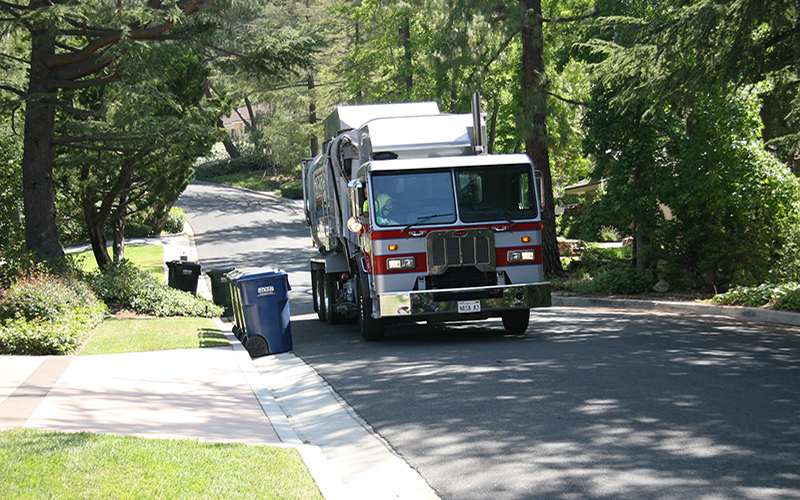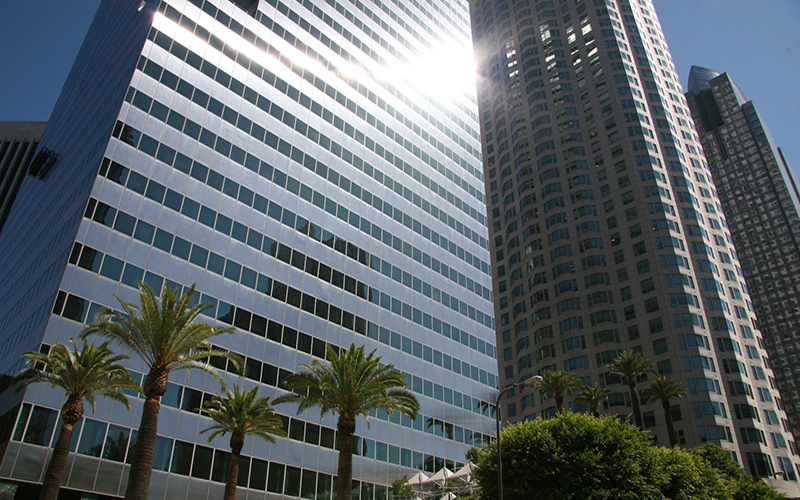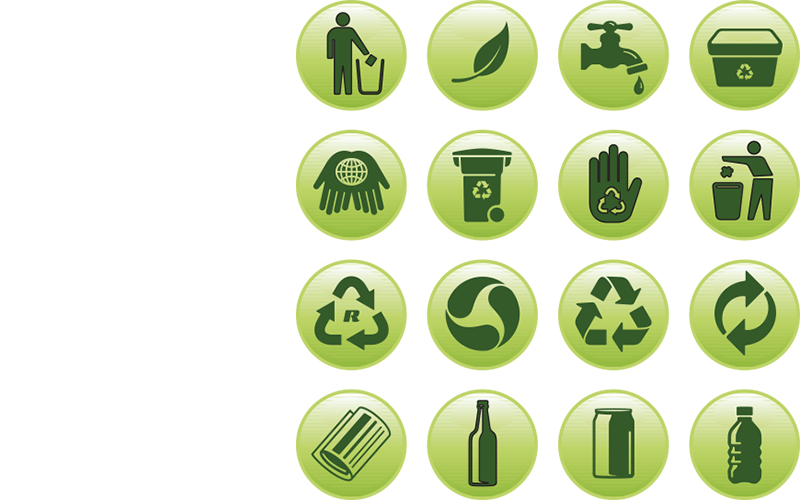NASA Services is one of Southern California’s leading advocates for recycling and conservation.
As part of our strong commitment to environmental stewardship, we offer sensible and easy-to-implement recycling solutions to single family residences, multi-family dwellings, commercial and industrial establishments, and construction and demolition sites.
Through our recycling programs, which promote the idea that everyone has a stake in preserving our planet’s resources, all community members can participate in conservation, whether at home, in the workplace, or at school.
Toward this objective we offer our own educational and outreach initiatives, which aims to help raise public awareness of recycling and sustainable energy, including conservation.
Recycling Benefits
- Conserves natural resources
- Prevents emissions of greenhouse gasses and water pollutants
- Saves energy
- Supplies valuable raw materials to industry
- Creates jobs
- Stimulates the development of green technologies
- Reduces the need for new landfills and incinerators
AB 939: The California Integrated Waste Management Act
AB 939 was passed in 1989. It mandated local jurisdictions to meet solid waste diversion goals of 25 percent by 1995 and 50 percent by 2000. To help increase diversion rates, each jurisdiction was required to create an Integrated Waste Management Plan that looked at recycling programs, purchasing of recycled programs, purchasing of recycled products and waste minimization. To date, California and most cities have surpassed the requirements of AB 939.
California’s 75 Percent Initiative: Defining the Future
In 2011, the Legislature and Governor Brown set an ambitious goal of 75 percent recycling, composting or source reduction of solid waste by 2020. Instead of focusing primarily on local diversion, the law calls for the state and the Department of Resources Recycling and Recovery (CalRecycle) to take a statewide approach to decreasing California’s reliance on landfills. CalRecycle has been tasked by the Legislature to examine how extensions of existing efforts, as well as new strategies, can be combined to reach that policy goal.
AB 341: Mandatory Commercial Recycling
Required to recycle if your property is:
- A business that regularly disposes of solid waste, or
- A multi-family dwelling of 5 units or more
Comply by:
- Separating your recyclable materials from your trash and taking them to the recycling center
- Subscribing to Blue Bin recycling services with your Service Provider
To learn more about what AB 341 is, click on Fact Sheet, The Bill, News Story.
The following websites provide additional information on AB 341
SB 1383: Short-Lived Climate Pollutant Reduction Strategy
Senate Bill (SB) 1383 targets the reduction of methane emissions from landfills. The law establishes a target of 75% by 2025 in the reduction of statewide disposal of organics waste.
Landfills are the third largest source of methane in California. Organics waste emits 20% of the state’s methane; a climate super pollutant up to 84 times more potent than carbon dioxide.
SB 1383 has numerous requirements for businesses, which includes multi-family complexes.
Foremost, businesses are required to subscribe to and participate in their jurisdiction’s organics collection service. CalRecycle provides a more detailed list of collections requirements at this web page.
The following offers a generalized summary:
- Businesses must provide collection containers for organic waste and recyclables in all areas where disposal containers are provided for customers, except in restrooms.
- To reduce contamination, businesses must provide education to employees, contractors, tenants, and customers regarding how to properly sort organic material into the correct containers.
Businesses must periodically: inspect organic waste containers for contamination; inform employees of contaminated containers; instruct employees on proper sorting of material into the correct containers; and ensure all containers have proper signage or labels that specify what materials are acceptable.
- Businesses must provide organic waste collection services for employees, tenants, contractors, and customers.
They are also required to provide annual education on how to properly sort organic waste into the correct bins.
For more detailed information on recycling and organics collection for your specific business, call LASAN Customer Care at 1-800-773-2489.
AB 1826: Mandatory Organics Recycling
Businesses and multi-family dwellings must have an organics (green waste) recycling program in place by:*
- January 1, 2017 – generators of 4 or more cubic yards of organic waste per week
- January 1, 2019 – generators of 4 or more cubic yards of solid waste per week
- Summer/Fall 2021 – generators of 2 or more cubic yards of solid waste per week, if statewide disposal of organic waste is not decreased by 50%
*Organics: defined by the State as food waste, green waste, landscape and pruning waste, nonhazardous wood waste and food soiled paper waste that is mixed with food waste.
NOTE: Multi-family residential dwellings are NOT required to recycle food waste at this time.
Comply by:
- Donating the generated organics waste (food rescue)
- Subscribing to Green bin organic waste services from your recycLA Service Provider
- Recycling organic waste onsite or self-haul for organics recycling








